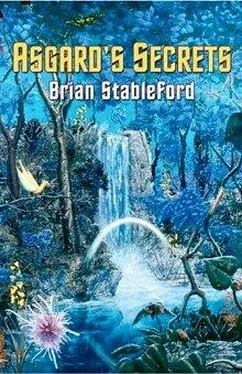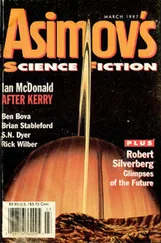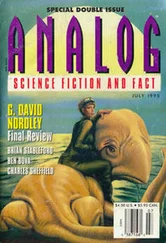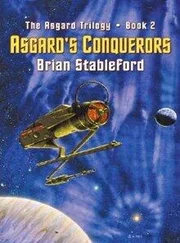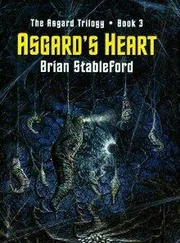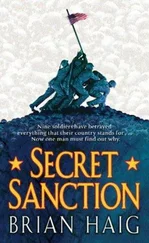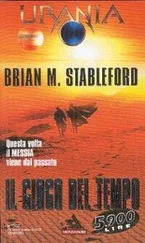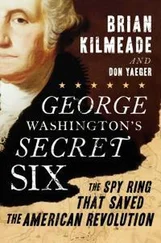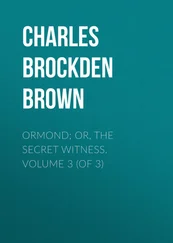I estimated that there must be at least six hundred “people” following us by now—maybe as many as a thousand. The city was big; it must have been built to house at least a hundred times as many—but it still seemed reasonably populous to me, given that everyone seemed to be on the brink of starvation.
At last, we turned aside, and found ourselves in a new region where the buildings were larger—not just because they had been very obviously built to accommodate people my size rather than the little people, but because they were municipal buildings rather than dwellings. They had suffered even more from the ravages of time than the simpler edifices; more than half had been reduced to rubble or to gaunt skeletons of jagged pillars and broken arches. Spears of shadow crisscrossed the cracked and thickly begrimed pavements on which we walked, although the open plazas we crossed on occasion showed much whiter in the relentless glare.
My heart rate increased when I saw the place to which our guide was leading us. It was a hemispherical dome, brilliantly lit from within so that beams of yellow light radiated like spines from its many rounded windows. Alone among the buildings it seemed untouched by decay. It did not belong here.
Our guide took us right up to a great circular portal that looked like the airlock of a starfreighter. He didn’t touch it. Once he was ten metres away, he turned sideways and beckoned us on. He obviously felt that he had done his bit. I hoped that he wasn’t expecting a tip.
Unfortunately, the door was tightly sealed and we hadn’t the slightest idea how it might be opened. There was some kind of panel beside the door, set at the height of my shoulder in the curved surface of the dome, but it was shielded by a plate of transparent plastic that didn’t yield to gentle pressure or prising by our gauntleted fingers.
I had to stand on tiptoe to look through the nearest of the brightly-lit “windows,” but I couldn’t see anything inside; the light was so bright that I wondered whether it was an incandescent bulb rather than a window.
The crowd was waiting.
“We must look like a couple of idiots,” I said to Myrlin, after several minutes of experimental probing and prodding.
“It seems to be locked,” he agreed—but he still had a cutter suspended from his belt, beside my flame-pistol, and he was already unshipping it.
I wasn’t sure that it was the wise thing to do, but I didn’t have any alternative to suggest.
I had a knife, and I opened it. I made one last attempt to lever off the plastic cover, but I couldn’t shift or scratch it.
“Let me,” said Myrlin.
I stepped aside, and he activated the cutter’s beam. I looked around to see how the crowd reacted to the sight of the flame, but they didn’t fall back in awe or display any alarm. They just watched, and waited.
Myrlin cut the centre out of the plate in a matter of seconds; the plastic shrivelled and melted away. He switched it off and waited for the edges to cool; then he inserted his vast fingers into the gap and started pressing the panel beneath.
Nothing happened.
I drew his attention to a vertical slit to the left of the panel. “A keyhole, do you think?” I said.
“Probably,” he admitted. I looked back at the crowd, still thinking that we must seem like total incompetents. Myrlin activated the cutter again, increased the power, and thrust the head of the device into the panel-box. The surface began to sizzle, and the metal of the console flared magnesium-white as its components began to burn.
“Be careful,” I said.
It was too late for that. The lights in the dome suddenly went out. Then the lights above the city went out too— every last one of them.
The crowd reacted to that. Its members scattered like frightened rabbits. At least, that was the impression I got. It seemed very dark, although Myrlin’s torch continued to give off a fervent glow until it sputtered out.
“What now?” the android asked.
I switched on my headlamp, and slowly played its beam over the deserted pavement where the crowd had been assembled a few moments earlier.
“I don’t know,” I said—and the city lights came back on just as I pronounced the final syllable.
“Well, we know that the repair systems are efficient,” he observed—but there was something different about the quality of the light now. It was no longer pure white, and it was no longer perfectly steady.
The lights in the dome came on again then, and they too had changed. The beams shining through the portholes were no longer yellow but pink. Higher up on the dome, some shone vivid red, but only intermittently.
“Do they use red flashing lights as warning signals on Salamandra?” I asked the android. “They do in the home system, and in Skychain City. It’s an inbuilt humanoid bias.”
“I don’t know,” he replied, absent-mindedly. He touched my arm and pointed, to draw my attention to the fact that the door was opening.
The hinge was at the top, and it swung outwards. The light within was dazzling, and I blinked furiously, desperate to adjust my eyes. I wanted to see whoever—or whatever— might come out.
I heard Myrlin cry out in pained surprise, and then felt the most horrid sensation imaginable—as if corrosive acid were being poured into my brain.
I screamed, exactly as the star-captain and her troopers had screamed when the amoeba flowed over them.
Perhaps Myrlin screamed too, but I couldn’t hear him. My inner being was being wrenched apart and shredded. I was trying with all my might to fall unconscious—and I suppose that I must have managed to do that, eventually.
Crazy as it may seem, I woke up feeling good.
I had long regarded it as an inevitable aspect of the human condition that no one, whatever the circumstances, ever wakes up feeling good, but this was an exceptional awakening in more ways than one. I felt fresh, light-headed, and euphoric.
The good feeling lasted as long as it took me to realise that I had no idea where I was. That was followed by the realisation that wherever I was, I had to be in dire trouble. I was no longer wearing a cold-suit; all I had on were the T-shirt and underpants that I usually wear under a cold-suit. I opened my eyes, blinking against the bright light, and had to shade them carefully until they adjusted.
When I tried to get to my feet, I realised that I had been lying on my side on hard ground. I wasn’t stiff or uncomfortable, so I concluded that I hadn’t been lying there long. The movement that brought me upright was attended by a peculiar feeling of nostalgia , which I didn’t understand at all for a few seconds, until it dawned on me that I felt very light. I had the kind of weight I’d carried around in my long-lost youth, when I lived on a microworld in the asteroid belt. All the years in which I’d been dragged down by the surface-gravity of Asgard seemed to have melted away, restoring an earlier state of being.
It was an illusion, of course; there was no way I could be back in the asteroid belt. But if I was still on—or rather in— Asgard, then I had to be a long way down. Maybe not in the centre, whose pull seemed still to be exerting itself upon my bare feet, but a lot nearer to the centre than that derelict ecosystem from which I’d been snatched.
I took my hand away from my eyes, then, ready to see whatever there was to be seen. And what there was to be seen threw all my calculations out of order again, because there was something very, very strange. It made me gasp in amazement.
The major surprise wasn’t the grassy plain, which seemed to stretch away from me in all directions, lush and green; or the tall palm-like trees, which grew in clumps; or the bright birds, which fluttered in their foliage, although I had never seen their like in all my life.
Читать дальше
